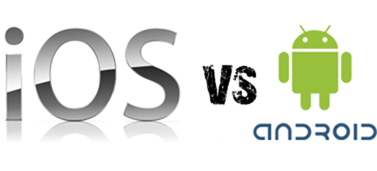The Android versus iOS debate is one of the most fiercely contested within the smartphone and tablet spectrum. Google’s comparatively new mobile OS trumps Apple’s offering in terms of reach and activations, but according to research compiled by ad network Chitika, iOS users are a lot more active on the Web than their Android-toting friends.
Chitika’s reach covers in excess of 100,000 websites, and in its latest report regarding mobile usage, the company published some interesting results. After monitoring the real-time activity on its out-reach of sites during a 24 hour period, Chitika found iOS to be by far the most popular choice for browsing.
Interestingly, Android accounts for around half of the entire smartphone market, and with daily activations in excess of half a million according to Android chief Andy Rubin, one would have presumed the numbers would be more in favor of the web company’s mobile effort. Alas, 68% of mobile browsing activity occurred through iOS, although 45% of that 68% was on the Cupertino company’s iPad tablet.
Meanwhile, iPhones accounted for 15% and the oft-overlooked iPod touch claimed 10%. Considering the iPhone offers cellular data usage (whereas the iPod touch only offers Wi-Fi radio), one may have suspected the iPhone’s number to be at a much higher level – particularly for convenience browsing on-the-fly. Furthermore, as an owner of an iPod touch, I would go to great lengths to not use it for internet browsing, and if my iPad or notebook were accessible, I wouldn’t dream of using the small screen of the touch.
Android could only muster a paltry 27%, which doesn’t look too good with the aforementioned dominance taken into consideration. Then again, in smartphone terms, the numbers are about right, since most of iOS browsing prowess stems from the iPad.
To complete the research, the "other" category of the market’s current also-rans accounted for just under 5 percent of traffic. Windows Phone – with the big launch of Windows 8 on the horizon – should begin to make some ground on the big two in the near future, although the same cannot be said for the likes of BlackBerry. Having seen the popularity of its BlackBerry Messenger plummet, there has been precious little else to entice consumers towards its largely underwhelming range of smartphones.
You can follow us on Twitter, add us to your circle on Google+ or like our Facebook page to keep yourself updated on all the latest from Microsoft, Google, Apple and the web.

